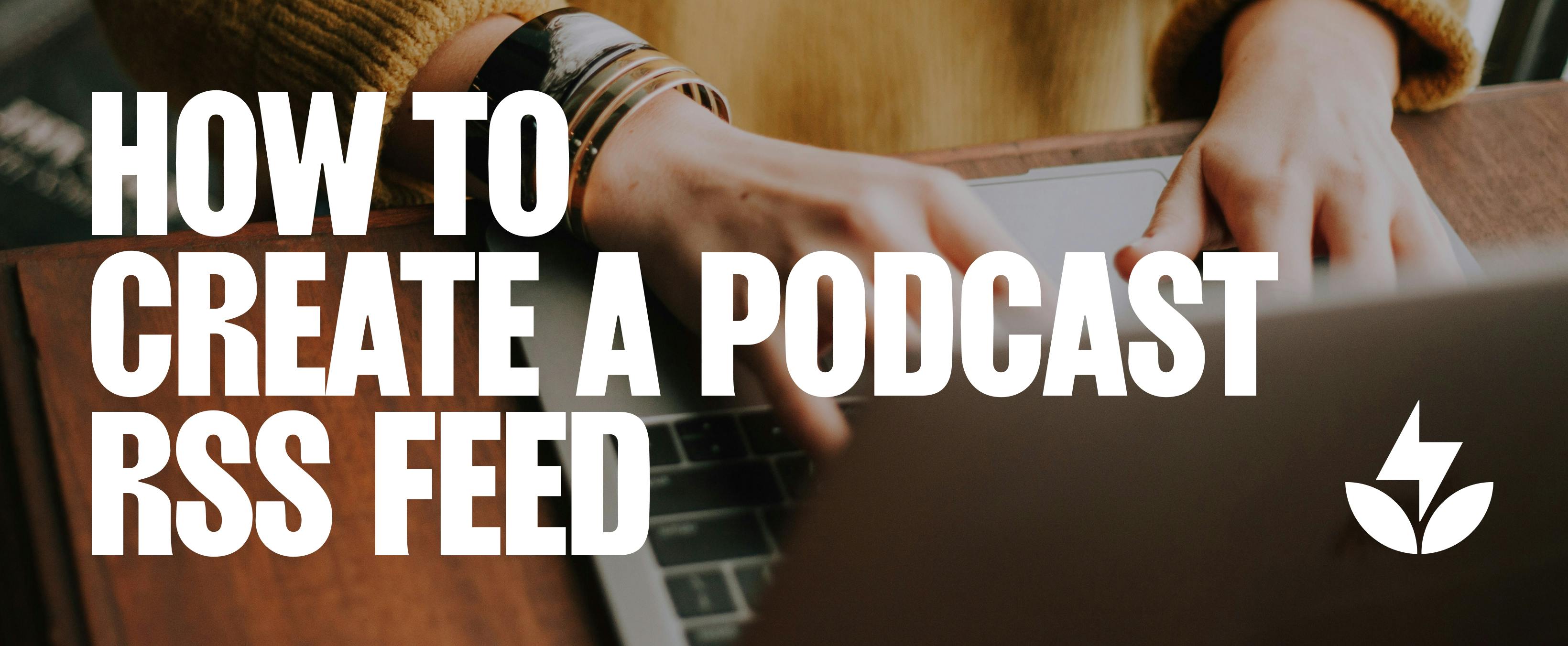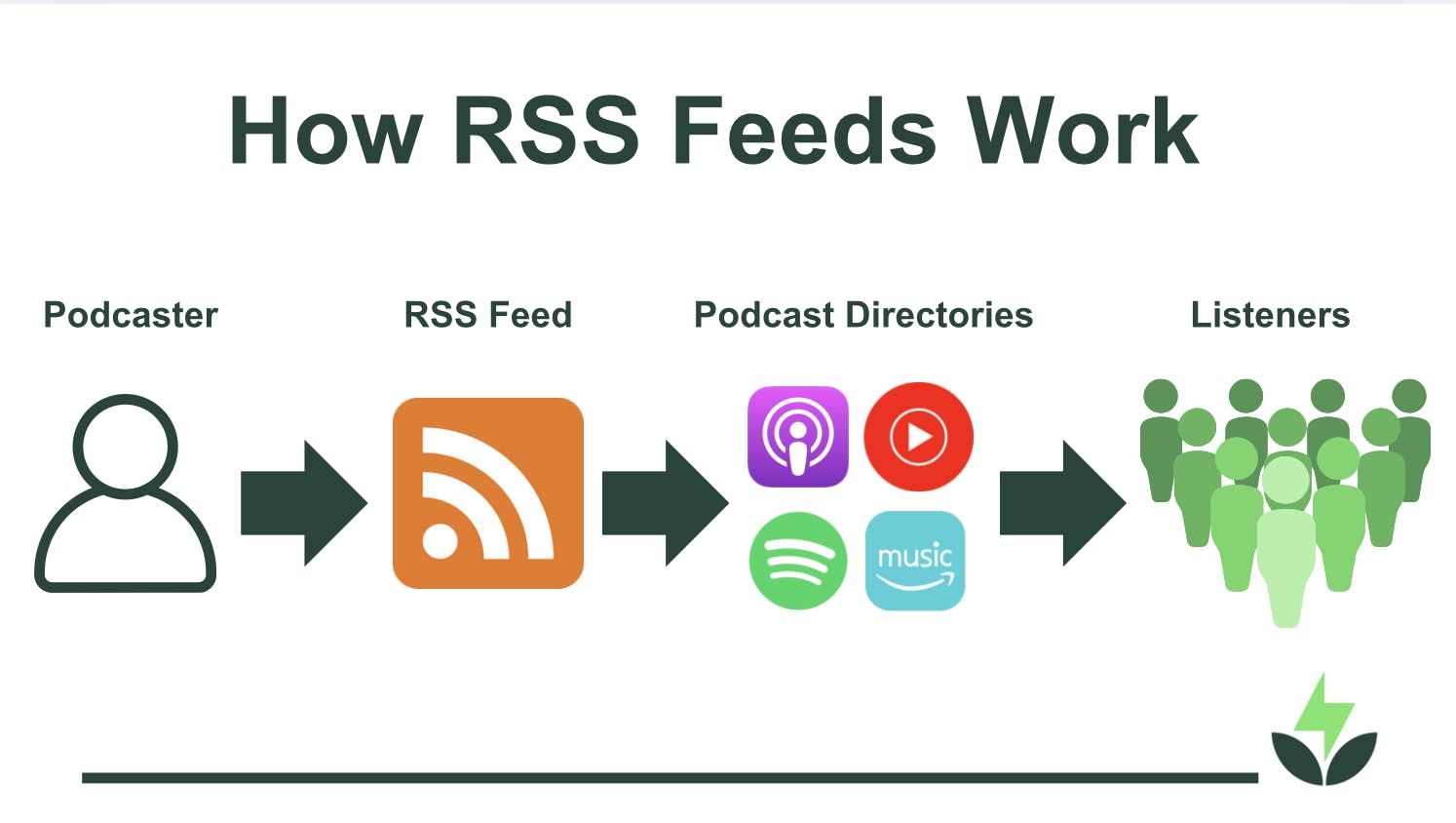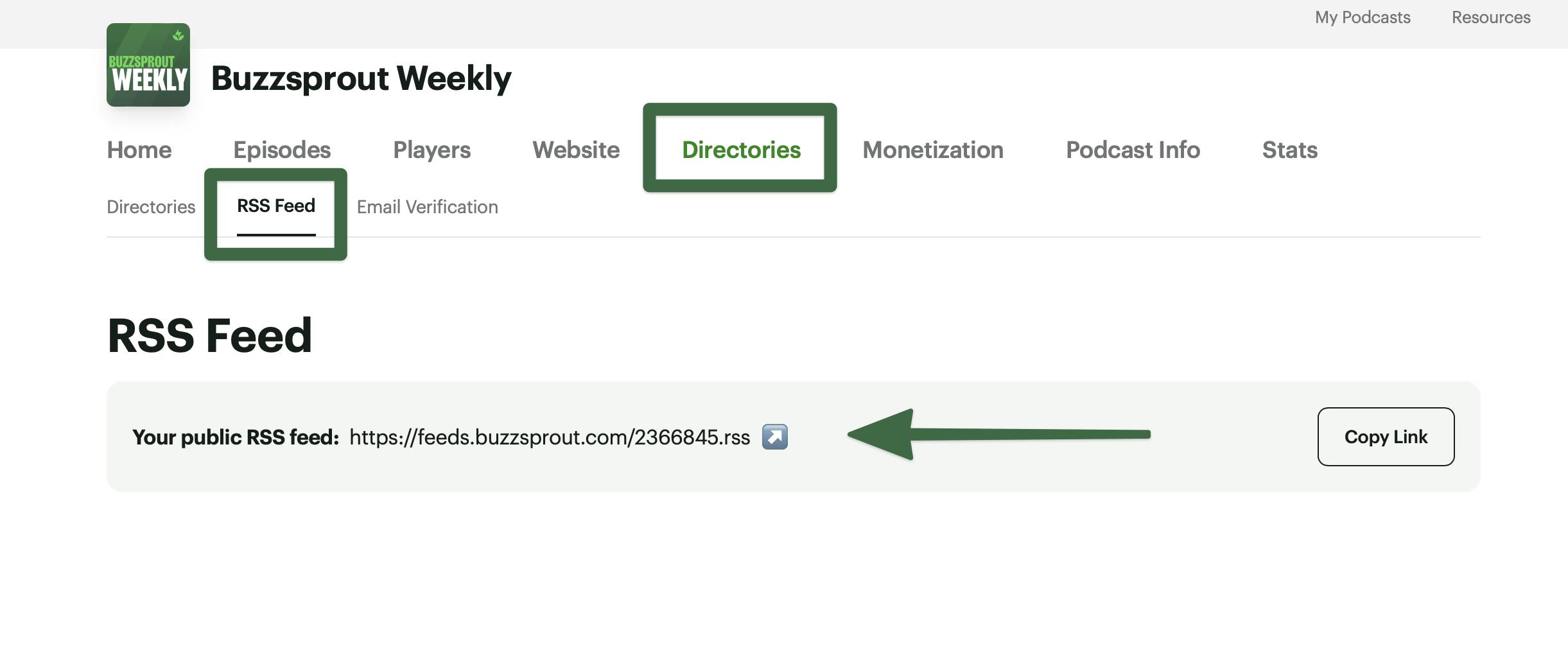
How to Create an RSS Feed
Starting a podcast can feel overwhelming with all the technical terms you’ll encounter, and "RSS feed" is one you’ll see a lot. But don’t worry—it’s easier to understand than it sounds!
In this step-by-step guide, we’ll explain what an RSS feed is, why you need one for your podcast, and how to create a new feed using a hosting platform or on your own.
What is an RSS feed?
RSS stands for Really Simple Syndication and was originally developed to help internet users keep up with bloggers and websites. Instead of visiting each site individually, people could use an RSS reader to see updates in one place.
For podcasts, an RSS feed is a block of HTML code that acts as an aggregator for all important information about your show—things like its title, description, artwork, and links to each episode’s audio file. Podcast apps like Apple Podcasts, Spotify, and Overcast read your custom RSS feed to display your show and deliver new episodes to subscribers automatically.
Why do you need a podcast RSS feed?

Your RSS feed is essential because podcast directories require it to list your show. Most people find and listen to podcasts using directories like Apple Podcasts (formerly iTunes) and Spotify, which pull your podcast episodes and new content from your RSS feed. Without one, directories can’t list your podcast, and potential listeners won’t be able to find it.
Since podcast apps make discovering new shows easy, having an RSS feed ensures your podcast is available to the widest possible audience.
How do you create an RSS feed?
There are two ways to create a podcast RSS feed: doing it manually or using a podcast hosting platform.
1. Hosting Audio Files on Your Website and Creating an RSS Feed from Scratch
Creating an RSS feed manually is possible but complicated. You’ll need a website that can host your audio files, like a WordPress or Squarespace site. From there, you can use an RSS feed generator plugin, like PowerPress for WordPress, to build your feed.
If anything is missing or misformatted, directories won’t be able to display your show correctly. You’ll also have to maintain your feed, ensure your website stays online, and keep your metadata accurate—otherwise, listeners could run into issues accessing your episodes.
Apple Podcasts (formerly iTunes) RSS feed Requirements
To be accepted into Apple Podcasts and other directories, your podcast RSS feed must have the required fields and tags:
- Title
- Description
- Artwork (1400x1400 px to 3000x3000 px at 72 dpi)
- Podcast Category
- Language
- Explicit Rating
If anything is missing or misformatted, directories won’t be able to display your show correctly. You’ll also have to maintain your feed, ensure your website stays online, and keep your metadata accurate—otherwise, listeners could run into issues accessing your episodes.
2. Using a Podcast Hosting Platform
The easier way to create an RSS feed is by using a podcast hosting platform like Buzzsprout. When you create an account, your host automatically generates an RSS feed formatted for all major directories. No coding required!
Your podcast host also manages your audio file storage and keeps your feed updated whenever you publish a new episode. They’ll even ensure your feed meets the technical requirements for directories like Apple Podcasts and Spotify, so your show stays online and accessible.
Because of the way RSS feeds work, this keeps your podcast readily available to listeners whenever they want to access it!
Where can I find my podcast RSS feed?
Once your podcast is submitted to all the major directories, you shouldn’t need to access your RSS feed often. However, if you ever need it, your podcast host will provide the URL.

If you’re using Buzzsprout, simply go to the Directories > RSS Feed tab in your dashboard. If you’re with a different hosting platform, check their help guides for instructions on finding your RSS feed URL.
Here are instructions for where to find your RSS feed if you use a different podcast host.
Using RSS Feeds Beyond Podcasting
RSS feeds aren’t just for podcasts—they’re widely used across the web in applications like e-commerce platforms, content management systems, and SEO tools. Developers often use APIs to integrate RSS feeds into websites or widgets, enabling automatic updates for blogs and product listings. Many platforms offer RSS generator tools and templates to simplify the feed creation process, eliminating the need to manually code headers or configure JSON files, but most of these are not built for podcasting. For podcast RSS feeds, we recommend creating one on your own with a website or using a podcast host!
Final Thoughts
An RSS feed is the foundation of your podcast’s distribution. It’s what makes your show available on podcast apps and keeps everything running smoothly. Whether you create one manually or use a hosting platform, having a properly managed RSS feed ensures your episodes reach your audience without extra hassle.
Megan Nelson
Megan Nelson is the Content Marketing Specialist for Buzzsprout and host of "Buzzsprout Weekly."
Frequently Asked Questions
Do you need a new RSS feed for each episode?
No, you will have one RSS feed for your podcast! Each new item you publish will be added to your RSS feed, so there is one feed that holds all of your latest content.
Can I share my RSS feed on social media?
You can, but we advise against it. Your RSS feed is designed for podcast directories or feed readers, not to serve as a homepage for your podcast. Your listeners will get a much better experience with a podcast webpage!
If you need to share your RSS feed, most hosts will provide an RSS icon on your podcast website.
Do you need to use Microsoft or iOS to create an RSS feed?
You can use either! RSS builders are built to be read by any computer. Podcast directories will still receive notifications for new content no matter what type of operating system you are using.
What is the correct format for an RSS feed?
You want your own RSS feed to be an XML file. Typically this means the URL will end in .xml!
What is the cost of an RSS feed?
Most RSS feeds are free with podcast hosting! So the pricing will depend on how much your hosting plan costs.
